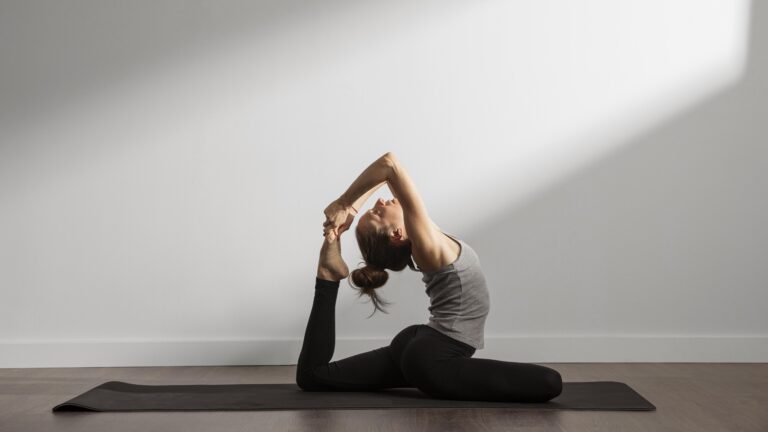
Are you trying to improve your general health and well-being using a holistic approach?. Due to its numerous physical, psychological, and spiritual advantages, this ancient practice has become extremely popular. .
Stress reduction and relaxation enhancement
Stress and anxiety are frequently results of life’s obligations. Yoga provides a haven where you can relax and discover inner serenity. Yoga induces the relaxation response and lowers stress hormone production through deep breathing exercises and awareness.
Regular practice can result in a more tranquil and impartial perspective on balanced outlook of life.
Increasing Muscle and Joint Strength
You must sustain your body weight in a variety of yoga poses, which helps to build strength in both the large and small muscle groups. Yoga positions’ isometric nature helps joint health by enhancing stability and mobility.
Increasing Mental Focus and Clarity
Yoga teaches you to be mindfully present in the moment, which improves your ability to concentrate and think clearly.
Your mental clarity will be further improved by breathing exercises and meditation, which will help you make better decisions and feel less mentally exhausted.
Improving Respiratory Performance
Yoga’s controlled breathing technique known as pranayama can significantly improve your respiratory system.
These methods aid in increasing your body’s oxygen intake, lung capacity, and
enhance total lung performance.
You’ll feel more energized and have more endurance as a result.
Yoga Poses Can Help Reduce Arthritis Pain
Regular exercise can help manage weight, strengthen muscles, and make joints more flexible, all of which are important for persons with arthritis.
According to Kogan, “We hypothesize that improved muscle strength, improved flexibility, and decreased stress are modifiable factors in arthritic pain relief.” So, it makes sense that yoga would help with symptom management. There isn’t enough proof to say one type of exercise is better than another for pain. Always check your doctor before attempting new forms of physical activity if you have any medical conditions.
Yoga Could Reduce a Hangover
Yoga might be the last thing on your mind the next morning after a night of drinking, but maybe it shouldn’t be.
Even if Kogan doesn’t have precise scientific studies on yoga’s capacity to lessen hangovers, there are a number of verifiable signs that it does. According to her, “It’s possible that practising yoga increases blood flow, aiding in the removal of alcohol’s toxic effects.”
Start with mild positions and move slowly if you’re feeling queasy.
FAQs
1. Is yoga appropriate for people of all ages?
Absolutely! Yoga comes in a variety of levels and styles, so you may pick one that fits your specific requirements and skill set.
2. I’m not flexible. Can I still practice yoga?
Yes, of course! Flexibility is a skill that may be acquired over time with regular practise. Whatever your starting point, yoga will help you increase your range of motion and flexibility.
3. How frequently should I do yoga to get the most out of it?
Key is consistency. Even a few times a week of yoga practise might have a visible impact. However, it’s equally crucial to pay attention to your health and refrain from overdoing it.
4. What tools will I need?
There isn’t much equipment needed for yoga. Frequently, a cozy mat and appropriate attire are all that is required. As you advance, using props like blocks and straps might be beneficial.
5. Can yoga take the place of my usual exercise regimen?
Yoga can enhance a variety of training regimens, but whether it takes the place of your regular programme depends on your fitness objectives.

